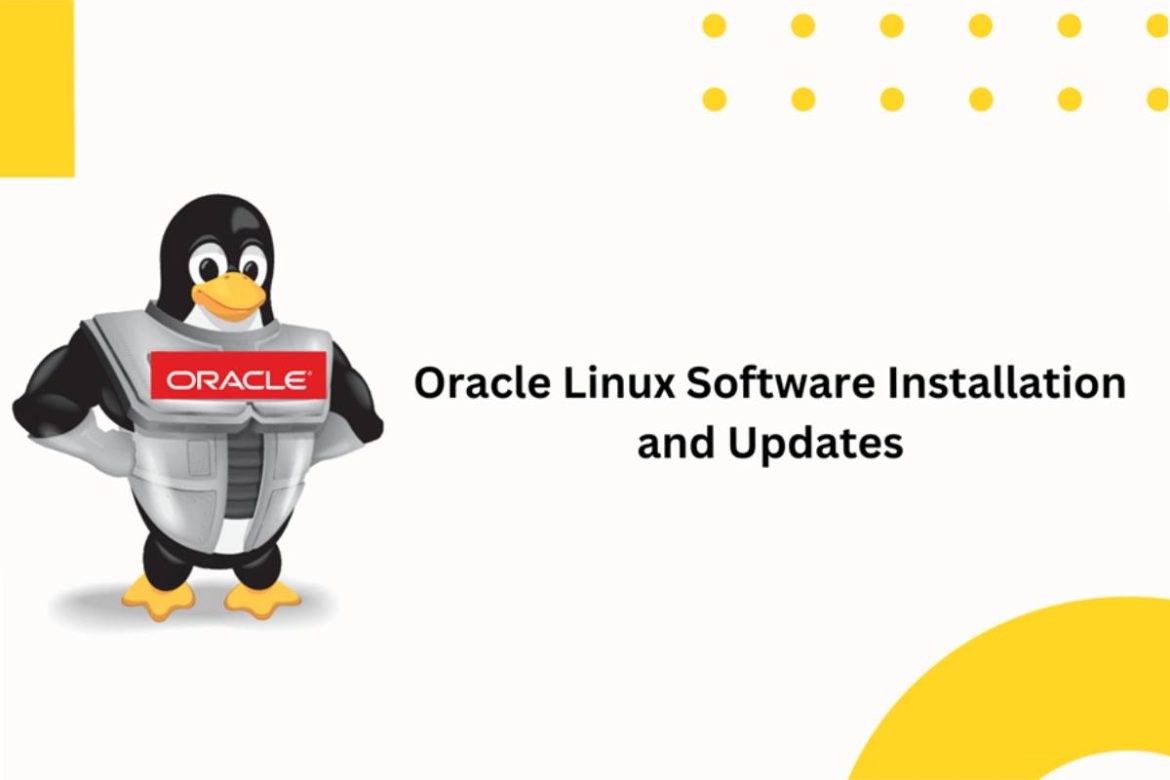Oracle Linux is a dependable and stable option among operating systems, renowned for its efficiency, protection, and ability to accommodate workloads that are crucial to business operations. It’s critical to comprehend the subtleties of software upgrades and installation if you want to make full use of Oracle Linux.
This blog explores the nuances of installing and updating Oracle Linux software, highlighting important considerations and best practices. Oracle Courses are a great resource for professionals who want to become experts at managing Oracle Linux environments as they offer the knowledge and abilities needed for smooth operations.
Table of Contents
Oracle Linux Software Installation: Unveiling the Process
Choosing the Right Distribution
Unbreakable Enterprise Kernel (UEK) and Oracle Linux Server are the two distributions offered by Oracle Linux. The selection between these distributions is contingent upon needs and application compatibility. Professionals can make well-informed judgements based on organisational demands with the help of Oracle courses.
Installation Methods
There are several ways to install Oracle Linux: utilising the Oracle Linux DVD, using a bootable USB drive, or using network-based installations. Oracle training ensures that experts can select and implement the best installation strategy for their surroundings by offering step-by-step instructions on every technique.
Partitioning and Disk Layout
Disc partitioning efficiency is essential for maximising performance and storage. Oracle Linux courses include disc partitioning best practices, including how to divide system data from user files and make sure critical directories have enough space allotted to them.
Network Configuration
For communication inside the infrastructure to function smoothly, the network configuration must be correct. Network configuration, including establishing IP addresses, DNS, and guaranteeing connectivity, is covered in Oracle Linux courses. Establishing a dependable and interconnected Oracle Linux infrastructure requires these abilities.
Package Selection and Customisation
Users can choose which packages are installed on the machine while installing Oracle Linux. Oracle courses offer information on package management, assisting experts in determining the packages needed for certain use cases while maximising system capacity.
Oracle Linux Software Updates: Navigating the Seas of Patching
Yum Package Manager
Oracle Linux comes with Yum (Yellowdog Updater, Modified) as the default package manager. Oracle courses cover Yum’s application in software update management, instructing experts on how to use commands like ‘yum update’ to maintain system upgrades with the newest security patches and feature additions.
Oracle Ksplice for Kernel Updates
An effective method for upgrading the Linux kernel without necessitating a system reboot is Oracle Ksplice. The use of Oracle Ksplice, which enables experts to perform crucial kernel updates with ease and guarantee little downtime and continuous operations, is highlighted in Oracle courses.
Oracle Unbreakable Linux Network (ULN)
Upgrades and security patches for Oracle Linux are available through the ULN, a centralised repository. The integration of systems using ULN, which enables administrators to effectively manage and deploy updates across Oracle Linux installations, is covered in Oracle courses.
Rollbacks and Snapshots
Now and then, an update may cause unexpected problems. Professionals who take Oracle courses gain the ability to take system snapshots before upgrades, which allows them to undo changes if necessary. By taking this preventive action, possible disruptions are reduced, and system stability is guaranteed.
Automation with Ansible
Ansible and other automation tool information is frequently included in Oracle courses. Administrators may expedite the update process, guarantee consistency across many systems, and minimise manual intervention by utilising Ansible for Oracle Linux updates.
Best Practices for Oracle Linux Software Installation and Updates
Regularly Update Systems
For the stability and security of the system to remain intact, timely upgrades are essential. Oracle training programmes provide a strong emphasis on creating a system update schedule that guarantees the timely application of security updates and upgrades.
Test Updates in a Controlled Environment
It’s best to test upgrades in a controlled environment before deploying them to live systems. Before making changes to crucial systems, professionals can evaluate the impact of updates and spot possible problems by using Oracle courses to help them build up test environments.
Monitor System Performance
Oracle courses offer insights into methods and tools for monitoring. It’s critical to keep an eye on system performance following updates to spot any irregularities or potential problems. By being proactive, we can make sure that systems keep functioning at their best after an upgrade.
Backup Critical Data
Updates are essential for security and feature improvements, but unanticipated problems can occur. Oracle courses emphasise the value of routine data backups and provide professionals with the knowledge and abilities to put strong backup plans in place, reducing the possibility of data loss while updating.
Conclusion
Installing and updating Oracle Linux software is a fundamental part of keeping an effective, safe, and high-performing IT infrastructure. Professionals with expertise from Oracle courses play a crucial role in managing these operations as more and more companies rely on Oracle Linux for their enterprise demands.
Understanding Oracle Linux software installation and upgrades is essential for maintaining the durability and adaptability of an organisation’s technological foundation in the always-changing field of information technology. Professionals may confidently traverse the waters of Oracle Linux operations with the help of Oracle courses, adopting cutting-edge methods and best practices that lead their companies towards a seamless and optimised computing future.

